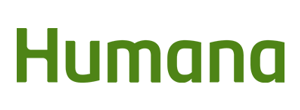Why Choose Humana Dental Plans?
 Variety of Choices
Variety of Choices
Find the affordable dental coverage you need with budget-friendly rates.
 Reasons to Smile
Reasons to Smile
Many of Humana's dental plans have no waiting periods.
 Large Dental Networks
Large Dental Networks
Our large selection of dentists and specialists means more is covered at a lower cost.
Company Background & Plan Features
Quick Guide
In this resource, you'll find:




Humana Overview
While much more widely known for its Medicare insurance in addition to traditional health insurance, Humana still ranks among the most popular dental coverage options in the United States. As a matter of fact, Humana boasts over 335,000 dentists participating in their various dental plan networks.
Humana, Inc. is a for-profit healthcare organization, founded in the early 1970s, with its headquarters located in Louisville, KY. The company's total revenues exceeded $92 billion in 2022. Alongside its financial success, Humana has been the recipient of numerous awards and recognitions. Some of the more notable include:
- Humana was proudly numbered among Forbes "JUST 100” list for 2020. The list recognizes companies leading the effort toward responsible capitalism.
- Humana also ranked number one among healthcare providers for its treatment of customers
- Humana Pharmacy was ranked as the top mail-order pharmacy nationwide in customer satisfaction according to J.D. Power's 2018 U.S. Pharmacy Study
- Humana was included in Corporate Responsibility Magazine's 2018 list of ”100 Best Corporate Citizens”
- Humana was honored by Diversity Inc in their ranking of Humana among the top 50 companies for diversity
Humana Dental Plan Options
Humana's dental products on DentalInsurance.com are organized according to four main classifications:
- Preventive Plus
- Loyalty Plus
- Humana Extend
- Dental Value Plan
The four plan categories are not available in every state. Many of Humana's dental plans have no waiting periods to delay the use of benefits. To see which Humana plans are available in your area, visit our rate quote page.
Preventive Plus
Humana Preventive Plus dental plans are not only economically priced (with a low deductible) but cover routine preventive care (e.g. annual oral exams and teeth cleanings) without any out-of-pocket costs if this care is delivered by an in-network dentist according to the terms of the plan. After a waiting period of six months, enrollees can receive basic services such as (such as fillings, extractions and X-rays) at 50 percent of their cost. Major dental services (crowns, root canals, etc.) may also have discounts applied to their prices when members use in-network dental providers. The maximum amount a Preventive Value plan pays toward covered dental care is $1,000 annually.
Loyalty Plus
Dental plans from the Humana Loyalty Plus category reward enrollees when they maintain coverage in the plan continuously year after year. In the first year, the insurer ’s spending limit for covered services is $1,000. In the second year of continuous coverage, that limit rises to $1,250, and it climbs to $1,500 by the third year. An additional benefit of Loyalty Plus is that the percentage of dental costs paid by the plan for basic and major services increases over 3 years. For example, among basic services such as fillings the amount paid by the plan starts at 40 percent in the first year of coverage and reaches 70 percent by the third year of coverage. Major dental services such as crowns have 20 percent of costs covered in the first year and increases to 50 percent by the third year.
Humana Extend
The Humana Extend dental plans offer both in-network and out-of-network benefits. The plans are catered to consumers who are interested in comprehensive dental coverage combined with vision and hearing benefits. Additionally, both the Humana Extend 2500 and Humana Extend 5000 plans include coverage for dental implants. According to a 2022 podcast interview with Steven Farmer, Retail Sales Director at Humana MarketPoint, the Humana Extend products were inspired by customer feedback "on the importance of dental care, vision care, and hearing care as being top priorities outside of the major medical benefits.” Humana sees the products as a transition from pure dental insurance to whole-person care.
Dental Value Plans
Dental Value Plans, such as the Dental Value Plan C550 and the Dental Value Plan HI215, are designed for cost-conscious shoppers who are looking for dental coverage with clear out-of-pocket costs. These plans are HMOs and have fixed copayments for covered dental procedures, as opposed to paying a percentage of costs (which is common for PPO dental plans).
A Reputation Built on Trust
Helpful in selection of a dental plan…
Helpful in selection of a dental plan fit for me and my spouse within 15 minutes.Kyle Vivio
I could understand the clearly spoken…
I could understand the clearly spoken English! They knew what I needed to fix my issues. Very friendly and fixed what I needed!Henry Montoya Jr
Humana Plans Offered on DentalInsurance.com
Frequently Asked Questions About Dental Insurance
Does dental insurance cover orthodontics?
Dental insurance coverage for orthodontic treatment is uncommon in dental insurance but still available. After reviewing our dental plan inventory across every state in the U.S., we found that 27.7 percent of plans had some type of orthodontic benefits. The benefits had different dollar limits on orthodontic expenses. Another finding was that, among that plans that covered braces, only 20 percent extended that coverage to adults as opposed to dependent children on a dental policy. Given the considerable expense of braces, it was also common (57.5 percent) for waiting periods before orthodontic benefits were available for use. For a more detailed discussion of orthodontic coverage in dental plans, see the article “Dental Insurance that Covers Braces.”
How does dental insurance coverage work?
The operation of dental insurance depends on the type of plan chosen. PPO dental plans, the most common form of privately purchased dental coverage, starts with a deductible period where the plan enrollee pays for dental expenses until the deductible amount is satisfied. After the deductible period is the standard cost-sharing of the plan. This is where the plan may charge a coinsurance fee for dental care where the enrollee pays a percentage of the procedure costs out-of-pocket. If dental exceeds the limit on annual insurance spending for covered care, known as the maximum benefit, the enrollee pays 100 percent of dental costs until the new plan year begins. Indemnity plans work much the same way as PPO plans but HMO plans often charge flat fee copayments for dental care instead of coinsurance fees. They also lack maximum benefit limits. Dental savings programs, also diverge from both the PPO and the HMO models. They do not have deductibles or maximum limits, and they allow an enrollee to access unlimited care at a set discount rate among a small group of in-network dentists.
What are the five most important features of dental insurance?
The five features of a dental insurance plan that are most important to consider when shopping for coverage are: your dentist’s acceptance of the plan or participation in the plan network, the dental treatments covered by the plan, whether there are waiting periods on any dental services, the maximum amount a plan will pay toward covered dental care per year, and the plan’s monthly premium.
How Much Does Individual Dental Insurance Cost on a Monthly and Annual Basis?
For a single individual, monthly insurance premiums may vary among plans from around $25 a month to $90 a month. However, the annual cost of a plan is more than this amount times twelve. There is also the annual deductible (often $50 for single coverage) and out-of-pocket costs for covered services. Let’s imagine a scenario where a person pays $35 a month for dental insurance and has a crown procedure. A rough estimate of annual costs (and this is only a rough estimate) would be $35 x 12 (for the twelve months in the year) + $50 deductible + $400 coinsurance fee for a crown. Altogether, this represents a cost of $870 for this year and this dental services assumption.
What Is the Earliest Activation Date for a Dental Plan?
Insurance coverage becomes active on its Effective Date, which the plan specifies as the first day on which insurance begins coverage. An effective date assumes both a successful application for insurance coverage and the payment of the first month’s premium. For many plans, the Effective is a couple weeks past the time the insurance application form is submitted by the customer. In the case of some dental discount programs, it might be a matter of days.
Can I Use Any Dentist with my Insurance?
Not necessarily. HMO plans and dental discount plans restrict enrollees to in-network dentists. PPO dental plans allow enrollees to use out-of-network dentists. However, a dentist has the right not to accept PPO if he or she chooses.
Are All Major Dental Procedures Covered by a Dental Plan?
It depends on the dental plan. Comprehensive dental insurance typically covers services such as crowns, root canals, gum procedures, dental implants, and teeth extraction. Orthodontics are not considered traditional dental care and is often uncovered by dental insurance. Many plans with coverage of major dental services will still enforce a waiting period on enrollees. A waiting period requires an enrollee to be in the plan for a minimum amount of time (e.g. 12 months) before a major dental service will be covered by the insurance company.




